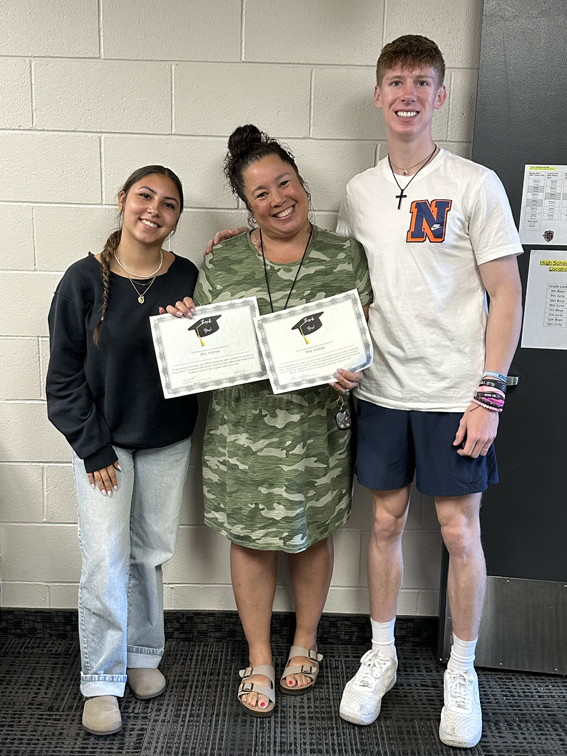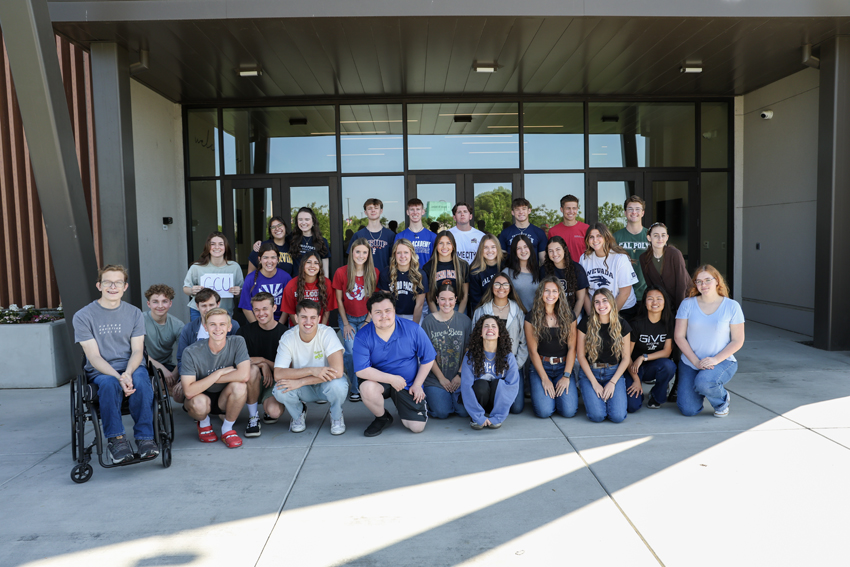In both the first and seventh period biology classes, guest speaker Annette Kearney of Children’s Hospital Central California visited to address the students about blood, the topic they are currently studying, on Dec. 7.
In her lesson, Kearney made a point of taking care of the body and referred to students as young people who may not think about the future. She encouraged students to consider their current actions and the potential consequences.
“You only get one body — only one shot with one body — so take care of it,” Kearney said. “What you do now can affect what happens to your body later on when you’re old.”
When she delved into the topic of blood, she described how bodily functions depend on each other.
“Everything relies on something else,” Kearney said. “It’s a domino effect. If one thing goes wrong, it can mess up all the things around it. There are so many organs with so many functions — we should be in total awe that our bodies even work.”
During the lecture, Kearney explained the components of blood and why each part is important. She presented slides, gave each student a list of the blood composition and provided handouts, one of which illustrated different types of blood cells. She explained the functions of each one, starting with platelets and finishing with basophil cells.
Biology instructor Herbert Kendall invited Kearney to show the students how to connect their study of blood with a potential career in biochemistry.
“Annette is the expert on how the blood gets to the cells so they can perform the process of cellular respiration,” Kendall said. “The students can put both pieces together to develop the entire idea. It also shows the students that are interested in biochemistry how to get there and what they can become.”
Because Kearney’s lecture expanded on the material he had already learned, freshman Chris Chon said he enjoyed having her visit.
“I liked the guest speaker because she explained things I didn’t know,” Chon said. “She explained about her job and what she did. I learned a lot about blood and blood respiration. The only thing I didn’t like is that we didn’t get to finish, because we ran out of time.”
Like Chon, sophomore Katherine Bennett said she valued Kearney’s information. In addition, she appreciated the chance to hear material from multiple sources.
“I thought she was a really good speaker; she was very informative,” Bennett said. “I thought it was good to hear the same thing from two different teachers, so we have two different opinions.”
Kearney had planned on doing only two years of her medical education in Fresno. After completing her internship, however, she decided to remain at Children’s Hospital Central California to diagnose cancer in patients. She currently practices adult oncology at Cancer Care Associates, a part of the hospital.
For more information on science classes, read the Nov. 18 article, Chemistry experiments elucidate principles.






